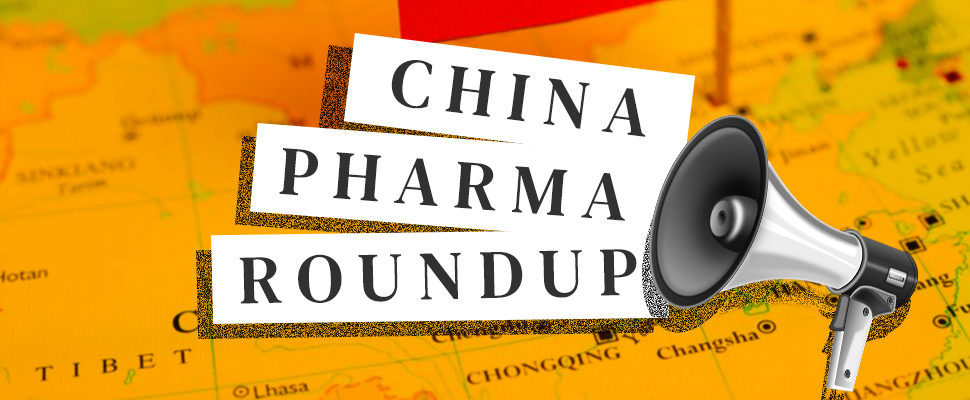A roundup of some of the latest pharma news from China including Pfizer’s first Asia launch of Rimegepant migraine treatment in Hong Kong; Zhifei and GSK’s shingles vaccine deal, and the collaboration between the Chinese University of Hong Kong and the Olympus Corporation.
Chinese University of Hong Kong and Olympus sign MoU to develop novel medical technologies (BioSpectrum Asis)
The Chinese University of Hong Kong (CUHK)’s Faculty of Medicine (CU Medicine) and Japan-based Olympus Corporation have signed a Memorandum of Understanding (MoU) to strengthen collaboration in the development of innovative endoscopy and laparoscopy technologies, promoting translation of innovative research to clinical practice.
Under the MoU, CU Medicine and Olympus will establish a joint research centre in Hong Kong, with the aim of developing innovative endoscopic and laparoscopic devices for diagnostic and therapeutic purposes, promoting clinical translation and technology transfer, as well as encouraging education and training in flexible endoscopy and laparoscopic surgery.
Colombian National Cancer Institute inks MoU with China’s BGI Genomics to combat cancer (BioSpectrum Asia)
China-based BGI Genomics, an integral part of BGI Group, has signed a Memorandum of Understanding (MoU) with the Colombian National Cancer Institute (INC or Instituto Nacional de Cancerologia). This collaboration, which aims to foster research and further develop cutting-edge solutions based on genetic sequencing for early diagnosis of cervical and colorectal cancer, reflects a shared dedication to enhancing health outcomes in the region.
The Colombian National Cancer Institute was created in 1934, and for over seven decades the INC has been committed to the provision of a comprehensive approach to prevention, treatment, rehabilitation and research of cancer in the Colombian population.
Pfizer launches Rimegepant in Hong Kong, first market in Asia for migraine management (BioSpectrum Asia)
US-based pharmaceutical company Pfizer has announced the availability of Rimegepant in Hong Kong, the first market in Asia, a calcitonin gene-related peptide (CGRP) receptor antagonist for migraine management. There are approximately 12.5% of people living with migraine in Hong Kong and it is one of the leading causes of disability worldwide. Migraine disproportionately affects women, occurring three to four times more often in women than in men.
Rimegepant targets a key component of migraine by blocking CGRP (calcitonin gene-related peptide) receptors. The increase of CGRP leads to blood vessels dilation, causing migraine attack. [10] CGRP receptor antagonists work by blocking CGRP receptors, thereby inhibiting the biologic activity of the endogenous CGRP neuropeptide.
Hong Kong’s TCM practitioners can play a bigger role in primary healthcare: think tank (South China Morning Post)
A major Hong Kong think tank has proposed including traditional Chinese medicine (TCM) practitioners in a pilot subsidy scheme to screen and treat chronic illnesses.
Our Hong Kong Foundation noted on Thursday that the Chronic Disease Co-Care Pilot Scheme starting next month would not involve TCM practitioners who could play a bigger part in primary healthcare.
GSK signs shingles vaccine deal with China’s Zhifei for around $3 bln (Reuters)
China’s largest vaccines company Zhifei will pay British drugmaker GSK 2.5 billion pounds ($3.05 billion) for the exclusive rights to distribute GSK’s shingles vaccine in the world’s No.2 pharmaceuticals market.
The deal is one of a series of moves by western pharmaceutical firms to seize a bigger share of China’s market, including announcements from companies such as AstraZeneca.
China’s CanSino seeks more vaccine contracts after AstraZenca deal (Reuters)
China’s CanSino Biologics, which recently announced a contract manufacturing deal to support AstraZenca’s messenger RNA (mRNA) technology vaccine programme, is in talks with more firms on similar deals, its CEO said, as it seeks new revenue streams to make up for plummeting COVID vaccine demand.
CanSino begun researching mRNA technology in 2018 and has built a facility in Shanghai that can produce up to 200 million doses a year, giving it the capacity to provide similar services to other companies, CanSino’s CEO and co-founder Xuefeng Yu told Reuters in an interview.



